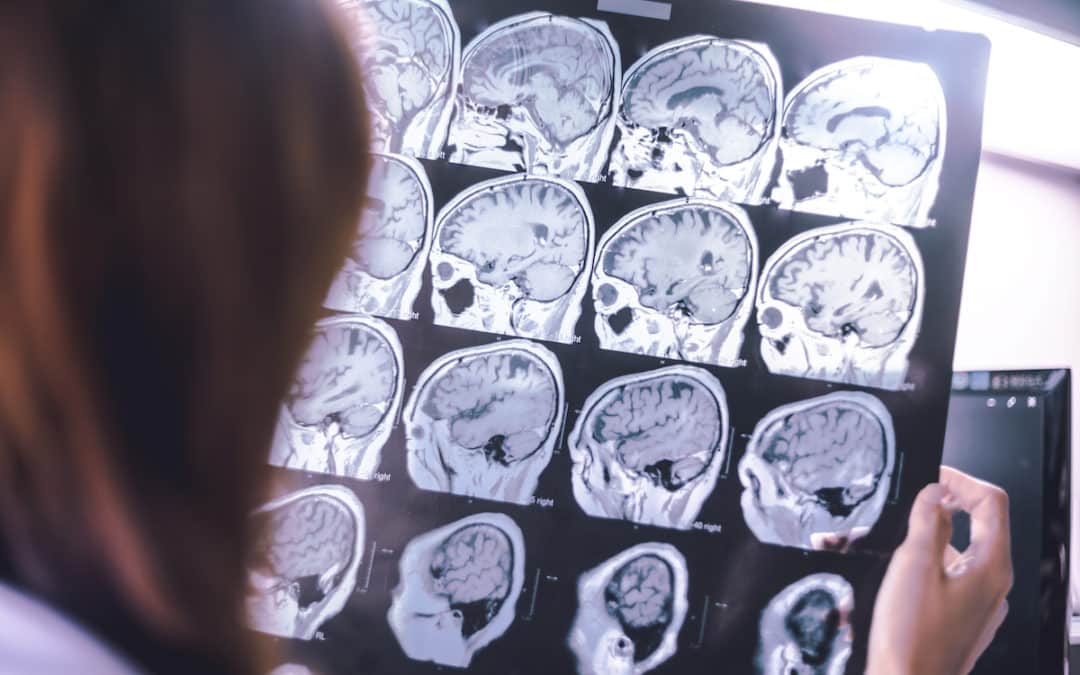After a loved one receives a dementia diagnosis, you may be left with more questions than answers. Not knowing how these new circumstances will affect life and what to expect in the days, months, and years to come can be overwhelming. However, with this diagnosis, you can begin to take the next steps.
Many commonly think of dementia as one condition, but it is actually a blanket term used to describe several types. According to the National Institute on Aging, “dementia is the loss of cognitive functioning – thinking, remembering, and reasoning – to such an extent that it interferes with a person’s daily life and activities.” Furthermore, dementia is a progressive condition with symptoms worsening over time.
Once your family member receives a diagnosis, it’s important to learn as much about their specific type of dementia as possible, so you know what to expect and can create a care plan. To help get you started, our team at The Grove on Forest Lane is sharing the common types of dementia as well as their symptoms.
Alzheimer’s Disease
Alzheimer’s disease is the most common type of dementia, accounting for 60% to 80% of all cases. Individuals living with Alzheimer’s disease develop clumps of the beta-amyloid protein, known as plaques, and fibrous tangles of the tau protein, referred to as tangles, in their brains. As more and more of these plaques and tangles form in the brain, they damage healthy neurons and their connections, leading to common Alzheimer’s disease symptoms.
While Alzheimer’s disease affects each person differently, common symptoms may include the following:
- Memory loss
- Poor judgment
- Loss of initiative and spontaneity
- Taking longer to complete normal, everyday tasks
- Wandering or getting lost in familiar places
- Mood and personality changes
- Difficulty with language – reading, writing, and speaking
- Shortened attention span
- Confusion about time
- Trouble recognizing friends and family
- Increased anxiety and agitation
Vascular Dementia
According to the Alzheimer’s Association, “vascular dementia is a decline in thinking skills caused by conditions that block or reduce blood flow to various regions of the brain, depriving them of oxygen and nutrients.”
Although it is considered one of the common types of dementia, many experts believe that vascular dementia often goes undiagnosed. It is estimated that “about 5% to 10% of people with dementia have vascular dementia alone.” However, it is often seen as part of a “mixed dementia” diagnosis.
Common symptoms associated with vascular dementia include:
- Memory problems that affect daily life
- Trouble speaking or understanding speech
- Difficulty recognizing familiar sights or sounds
- Increased confusion or agitation
- Changes in personality or mood
- Trouble with balance and walking
Frontotemporal Dementia
In Frontotemporal dementia, the nerve cells and their connections found in the frontal and temporal lobes of the brain break down. Because these areas of the brain are often associated with personality, behavior, and language, individuals diagnosed with Frontotemporal dementia experience changes in behavior, personality, thinking, and reasoning.
Other common symptoms of Frontotemporal dementia include:
- Trouble with balance
- Muscle spasms or stiffness
- Difficulty walking or changes in posture
- Language comprehension and speaking problems
Lewy Body Dementia
“Lewy body dementia is a disease associated with abnormal deposits of a protein called alpha-synuclein in the brain. These deposits, called Lewy bodies, affect chemicals in the brain whose changes, in turn, can lead to problems with thinking, movement, behavior, and mood (National Institute on Aging).”
Lewy body dementia, also referred to as dementia with Lewy bodies, is the third most common type of dementia. Common symptoms may include:
- Hunched posture
- Rigid muscles
- A shuffling walk
- Trouble with thinking clearly or making decisions
- A shortened attention span
- Memory loss
- Unusual sleepiness during the day
- Periods of staring or “blanking out”
Learning as much as you can about your loved one’s specific type of dementia is the first step in creating a care plan that can help delay the progression of their condition. The memory care services we offer at The Grove on Forest Lane can also help. Our team members get to know each resident’s unique preferences and routines, honoring individual dignity and enabling harmony between mind and body.
If you would like to learn more about The Grove’s memory care services, we invite you to visit our website or contact a member of our team.



